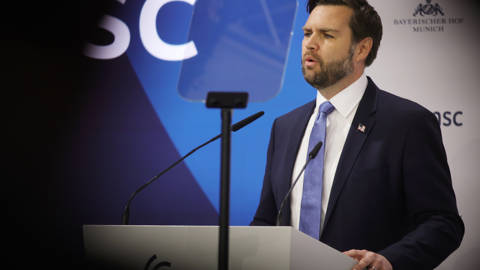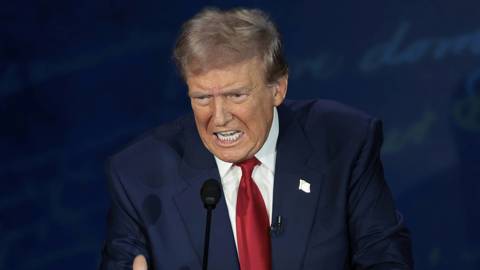Ricardo Hausmann
Says More…
This week in Say More, PS talks with Ricardo Hausmann, a professor at Harvard Kennedy School and Director of the Harvard Growth Lab.
Project Syndicate: Two years ago, you and Dany Bahar warned that the persistence of the anti-immigration bias that Donald Trump had stoked among policymakers could lead to stagnation in the United States. Now, Trump is back and promising not only tighter immigration rules, but also mass deportations. Where are the costs of this approach likely to appear first, and to what extent would providing more H-1B visas for high-skill workers, as some Trump allies advocate, offset the damage?
Ricardo Hausmann: Restrictions on immigration impede growth by reducing the labor supply and weakening innovation. Low-skill immigrants are important for many industries, such as construction and services. By offering care services, they also free up high-skill natives, especially women, to participate more fully in the economy. If the labor supply shrinks, the US Federal Reserve will have to keep interest rates higher for longer.
But there is another dimension to this discussion: immigrants are highly over-represented in entrepreneurship, innovation, science, and technology. To facilitate their continued contributions to US innovation and dynamism, the number of H-1B visas available should be radically increased. But H1-B visas are granted at the request of firms; the US also needs visas for entrepreneurs. And it needs to improve the ability of foreign graduates of American universities to stay in the US.
PS: In June 2022, you argued that providing Ukraine with robust security guarantees would “generate the participation in value chains that could make Ukraine more prosperous, Europe more efficient, and the world better fed.” Nearly three years later, Trump is promising to negotiate a quick agreement with Russia to end the war. While much depends on the provisions of such an agreement, how might Ukraine’s forced capitulation affect Europe?
RH: By signaling that the US security umbrella cannot be relied upon, a Russian victory in Ukraine would force Europe to become a military superpower in its own right. But Europe should take this path even if the Ukraine war’s outcome is more benign.
Ukraine can be a major asset in the new European military-industrial complex, but if the country is to complete its accession to the European Union, robust security guarantees are essential. After World War II, the Marshall Plan, together with trade liberalization, supported Europe’s recovery, but so did security guarantees provided by the US. Ukraine’s lackluster economic performance after 2014 – when Russia invaded eastern Ukraine and annexed Crimea – partly reflects the lack of such guarantees.
PS: You have criticized prevailing approaches to climate finance, the scale of which is often misrepresented, and advocated a “macroeconomic approach” that leverages such finance to increase developing countries’ borrowing capacity, either by reducing the cost of debt or by boosting exports. Do the climate-finance pledges produced at last month’s United Nations Climate Change Conference (COP29) reflect the same old mistakes, or do some elements of the final agreement show promise?
RH: Most developing countries are already grappling with untenable debt burdens. When budgets are strained, financing climate projects necessarily means reducing investment in other areas – unless climate finance expands countries’ capacity to borrow. Unfortunately, this is not happening at the World Bank or at other development banks.
But climate finance can enhance borrowing capacity in two ways: by supporting projects that increase a country’s ability to export, especially green products, or through the inclusion of a significant grant component. The first is almost outside of what is discussed. The latter remains woefully inadequate.

Introductory Offer: Save 30% on PS Digital
Access every new PS commentary, our entire On Point suite of subscriber-exclusive content – including Longer Reads, Insider Interviews, Big Picture/Big Question, and Say More – and the full PS archive.
BY THE WAY . . .
PS: You have lamented Latin America’s slow adoption of new technologies, which is hampering development across the region. What would it take to change this, and who should take the lead?
RH: Accelerating technology adoption requires, first, that business leaders recognize the tremendous opportunity it represents.
Latin America is home to major mining countries, but carries out almost no development of mining technology. We have the world’s largest lithium reserves, but no center for lithium-related research. We have tropical diseases, but carry out minimal medical research on them. We have universities that focus almost exclusively on teaching, and are not structured to help businesses innovate.
To address these shortcomings, we must recognize the associated chicken-or-egg problems. Universities cannot produce innovative research, because they lack sufficient funds and qualified people, and firms do not invest in research and development, because there is no ecosystem that can transform money into innovation. Generating more innovative momentum should begin with efforts to tackle the most glaring technological challenges.
PS: Following the collapse of Syrian dictator Bashar al-Assad’s regime last month, you issued a warning to Venezuelan leader Nicolás Maduro: “you are not stronger or more supported than your friend.” Assuming that Maduro’s government does fall, what sort of economic-recovery strategy might the “growth diagnostics” framework, which you developed with Dani Rodrik and Andrés Velasco, suggest?
RH: The growth-diagnostic approach is based on identifying the binding constraints to growth. In Venezuela, the binding constraint on the economy is the absence of credible economic rights. Expropriations and insecure property rights destroyed oil, mining, manufacturing, agriculture, and so much more. In the process, they decimated state capacity, destroyed macroeconomic stability, and fueled a huge wave of emigration.
Re-establishing economic rights is thus essential to empower Venezuelans, including the diaspora, to lead their country’s recovery and reinvention. International financial support to rebuild state capacity and macroeconomic stability will also be very helpful.
PS: Harvard’s Growth Lab, which you lead, aims to “push the frontiers of economic growth and development policy research,” with an emphasis on economic complexity. How does the “economic-complexity paradigm” change our understanding of innovation and development?
RH: The economic-complexity approach puts distributed knowledge at the base of the economy. A society produces what it collectively knows how to produce. How much each person knows, on average, is not the point; what matters is how different one person’s knowledge set is from that of another. The division of knowledge among members of society enables the whole to know more than the parts. But if you want to make use of the knowledge that has been divided among all those different minds, you must put Humpy Dumpy together again, connecting people through efficient networks.
The expansion of a society’s collective knowledge is reflected in the production of more kinds of things (diversification) and more complex (knowledge-intensive) things. This process is rife with chicken-and-egg problems – for example, there are no workers with experience in industries that do not yet exist – that need to be addressed.




